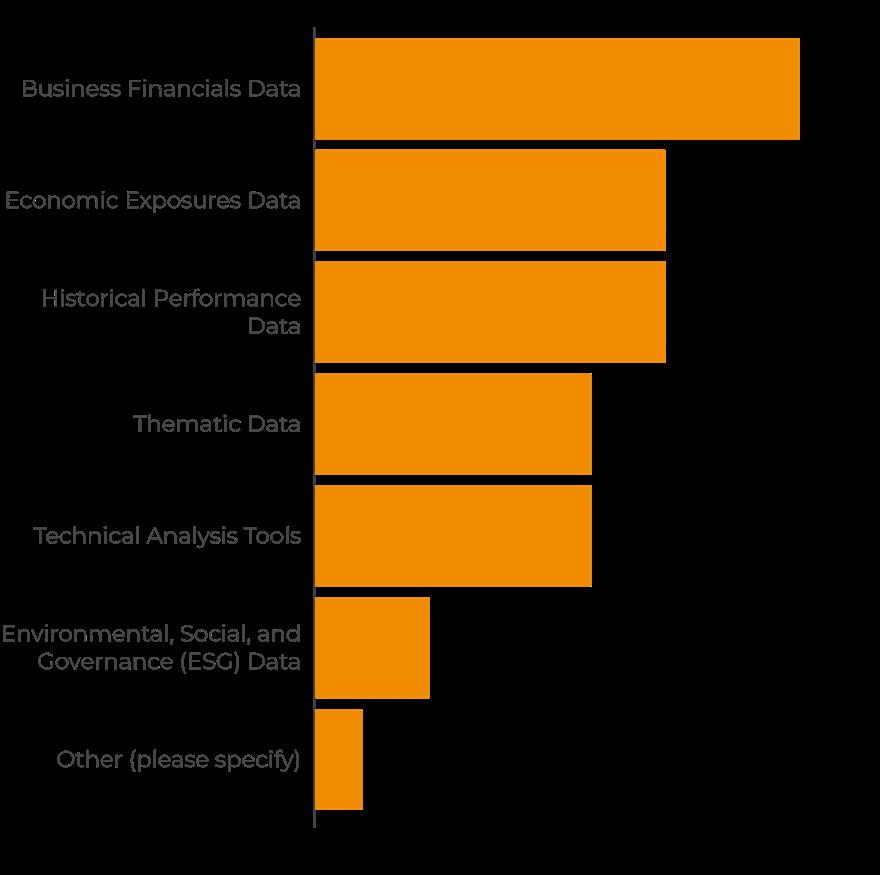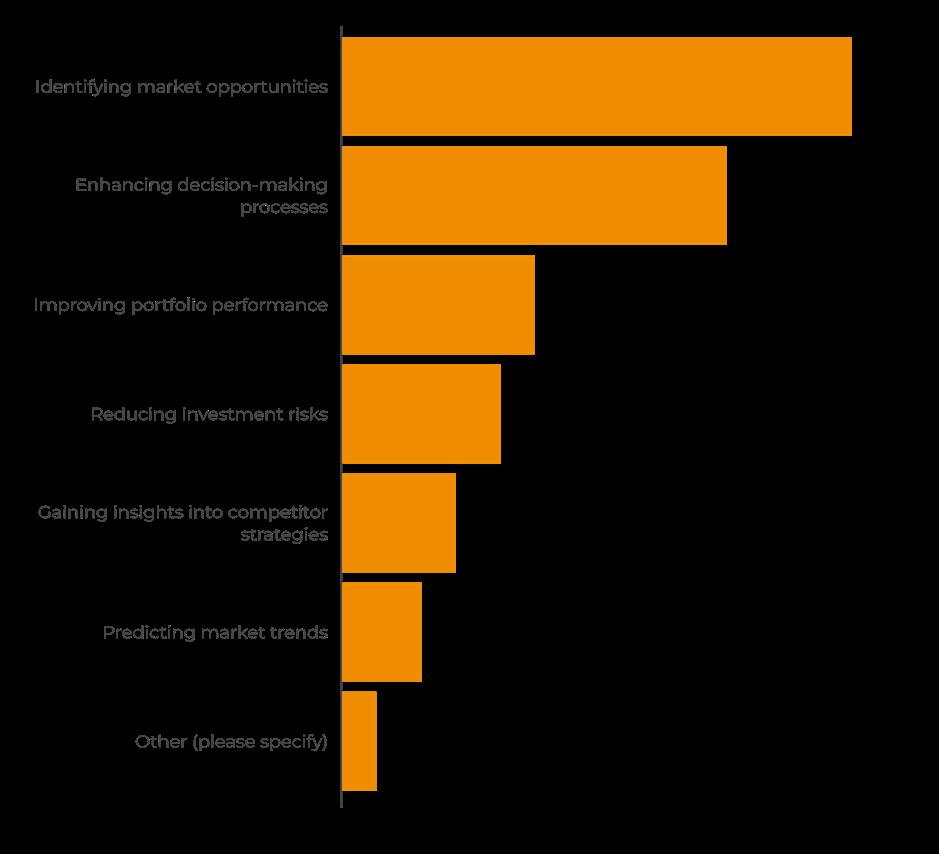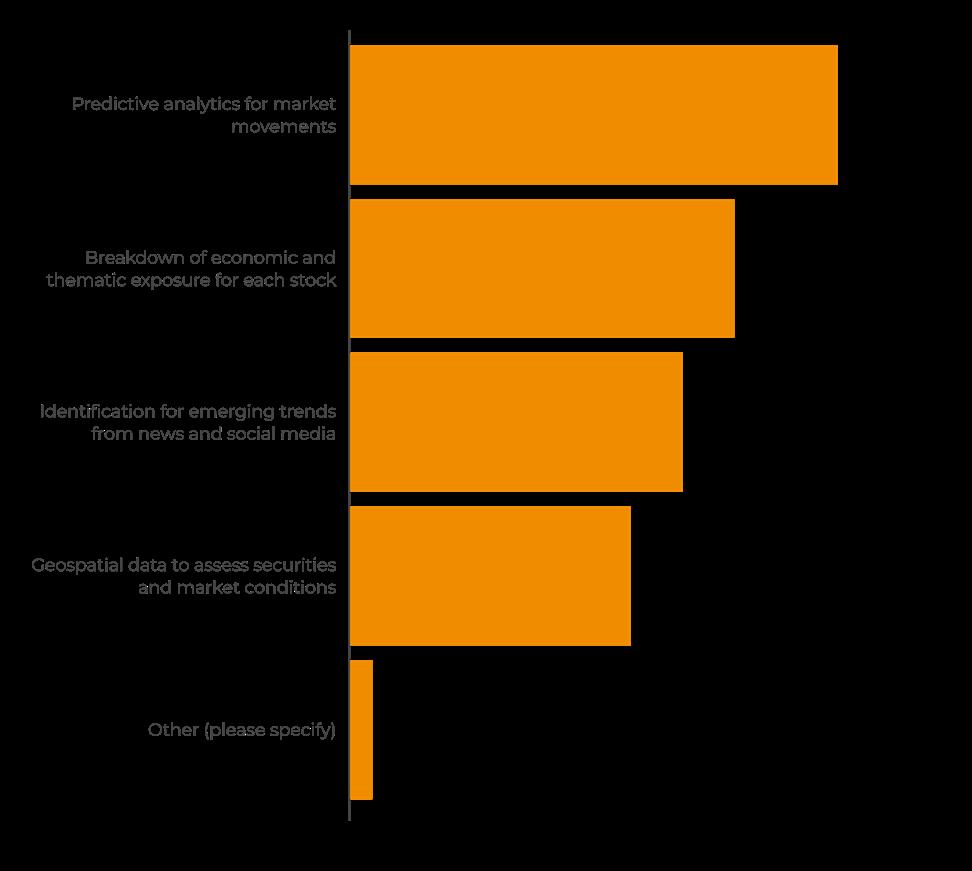




How hedge funds use data – and the impact of AI
Two-thirds of hedge funds incorporate data into their investment decision-making, primarily for portfolio management and risk analysis.
Over half of respondents expressed interest in using business financials, economic exposures, and historical performance data to better inform investment decisions.
Findings confirm the growing use of data among hedge funds and ongoing search for sources to enhance investment strategies, says MSCI.
Data has fundamentally changed how hedge funds trade and operate. The use of quantitative strategies are on the ascent, and even discretionary funds are increasingly adopting more data-driven techniques.
“More and more hedge funds deploy a quantitative approach,” says Payton Ong, Index Product Specialist at MSCI. “Most of their functions, from portfolio construction to risk management and alpha generation, have a growing need for data.”
To assess the extent and nature of this shift, Hedgeweek surveyed hedge fund managers in Asia during the fourth quarter of 2024. The findings reveal the centrality of data in modern investment processes.
Two-thirds of respondents (66% - multiple selections were allowed, see Fig 1) cited portfolio management and portfolio risk management analysis as the main uses for data. Close behind, 59% pointed to investment idea sourcing using bespoke or niche alternative data. A significant portion of respondents (38%) use it to support their quantitative research process, while 28% of funds used data to generate alpha directly, such as through index rebalancing.
Yet, outside of investment functions, data adoption remains limited. For instance, only 21% leveraged data to manage compliance and regulatory reporting, suggesting adoption is more widespread in investment rather than operational processes.


Looking ahead, hedge funds are keen to broaden their use of data. Nearly threequarters of respondents expressed a desire to incorporate business financial data into their investment decision-making process (72%, see Fig. 2). Economic exposures data and historical performance data also stood out, with 52% selecting each. Environmental, social and governance (ESG) data, by contrast, was only picked by 17% of respondents.
“The fact that hedge funds are highlighting business and financial data, plus historical data, is no surprise. More hedge funds are using data to trade on both macro and micro trends, for example, and we have seen growing client uptake here. The responses here show the range of ways hedge funds use data to improve strategies & decision-making.”
The biggest competitive advantage data provides is its ability to identify market opportunities, an aspect identified by 45% of respondents (see Fig. 3). For more than a third (34%), data’s value lies in improving decisionmaking processes overall.
Artificial intelligence, meanwhile, has emerged as a prominent focus for the industry. Since the pandemic, hedge funds have increasingly sought to harness AI’s potential. Majority of respondents (66%) expressed interest in using AI for predictive analytics to anticipate market movements (Fig. 4).
Half of respondents (52%) seek to use AIpowered breakdowns of economic and thematic exposures for individual stock. Meanwhile, 45% cited using AI to identify emerging trends from news and social media, and 38% saw potential in applying geospatial data to assess securities and market conditions.
“AI has become a powerful tool. It allows hedge funds to explore data sets from myriad different angles, very efficiently. Adopting the latest tools can help hedge funds remain competitive, but it ultimately depends on the quality of the underlying data,” says Ong.


Source: